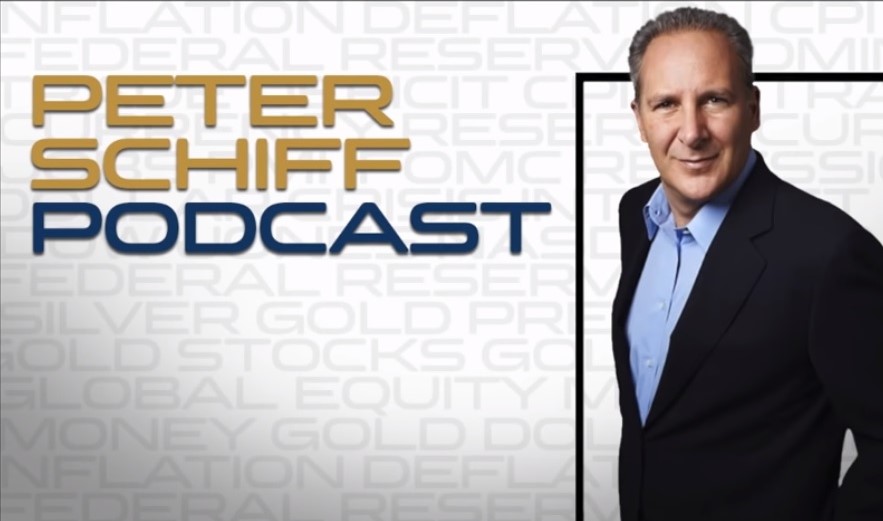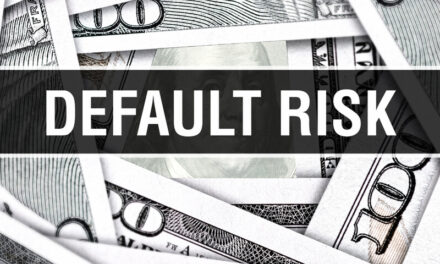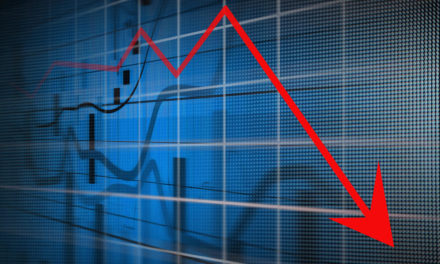Economist Peter Schiff said in his latest podcast that Americans don’t want to face the truth: We are very likely already in a recession.
“Nobody wants to deal with the truth; because you know how grim the reality is? Because if you have to accept the fact that this economy is going into recession, then you have to accept a lot of unpleasant things that nobody wants to admit,” Schiff said.
The market got a big bump on Monday upon news of a trade war truce between the United States and China, only to completely nosedive the very next day as investors realized the truce didn’t amount to much as President Donald Trump again threatened more tariffs, calling himself a “Tariff Man.”
The Dow plunged 3.1 percent — 799 points in all — while the S&P 500 fell 3.2 percent and the Nasdaq 3.8 percent.
“I did not know we would drop this much this quickly, but it doesn’t surprise me. This is a bear market, as I’ve said, and we had a bear market rally,” Schiff said of Tuesday’s collapse after Monday’s bump.
Another thing also happened Monday that likely sent investors into a panic: the yield curve between two-year and five-year, and between the three-year and five-year Treasury bonds both inverted.
“The market is saying it thinks sometime two or three years from now, the Fed is going to be cutting rates because the economy is going to be in a recession,” Schiff said. “And so people think yields will be lower three years from now than they are today because they think the economy will be into a recession at some point in the future.”
However, Schiff said the markets actually have it wrong and we are likely already in a recession and if not quite yet, we will be soon.
“In fact, we may even be in a recession now. We don’t know yet. We won’t know yet until the government goes back and revises all the numbers,” he said. “But that is what they will do, because if you look at what is going on beneath all the headlines, the real economic data is weak. I don’t care that the unemployment rate is still low. The unemployment rate can spike higher very quickly.”
Volatile markets and the inverted yield curve aren’t the first signals of an incoming recession, just the latest. The auto and housing sectors have both slowed, oil prices also are falling as we are using less energy, all signs we are headed into an economic slowdown.
Even with all of the evidence, Schiff says people just don’t want to hear it.
“What has happened in the last week is very, very bullish for the price of gold, and the price of gold is not catching much of a bid. I think again, the main reason for this is because nobody gets it. People still think this is a bull market,” he said. “They’re not worried about the decline. They think it’s just a buying opportunity. It’s just a correction. They still think the economy is good.
“Even though the bond market doesn’t, even though the yield curve is inverting in the front end of the curve, people are dismissing that. They’re dismissing the housing data, they’re dismissing the build in crude (oil) inventories. They’re not looking at any of the real data because nobody wants to believe it. Everybody still wants to believe all the hype — that this economy is great, that this economy is booming. Nobody wants to deal with the truth; because you know how grim the reality is? Because if you have to accept the fact that this economy is going into recession, then you have to accept a lot of unpleasant things that nobody wants to admit.”
Schiff says the results will be a weakening of the dollar and out-of-control inflation when the Fed goes back to quantitative easing in hopes of reinflating the bubbles.
“If we are going into recession and if the Fed is going to go back to the QE well and take rates back to zero, the dollar is going to tank and the inflation fire that is already burning is going to heat up and it’s going to be stagflation,” Schiff said. “Nobody understands that we can have recession and inflation at the same time, but that is exactly what is going to happen.
“That is what’s going to make this next recession so much greater than the last one — because instead of being relieved by lower prices, unemployed people are going to be burdened with much higher prices. Even if you still have a job, your paycheck isn’t going to go as far because everything you want to buy is going to cost a lot more.”




